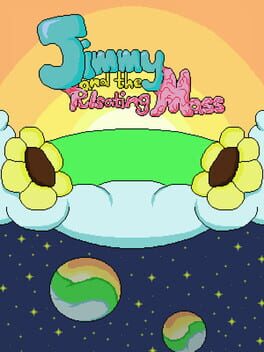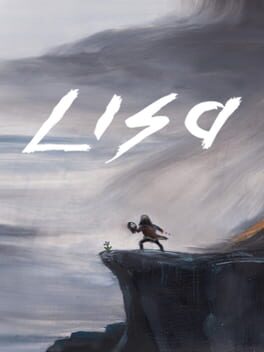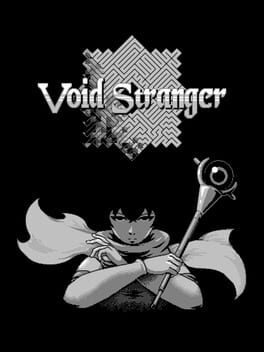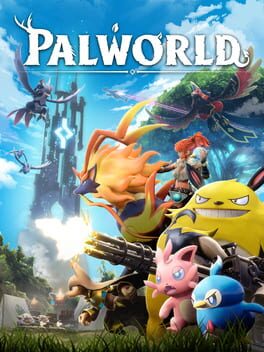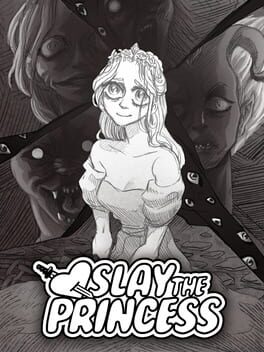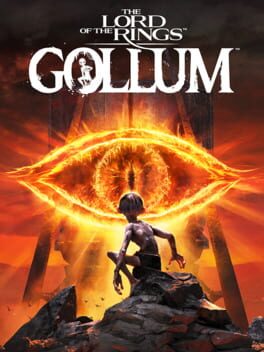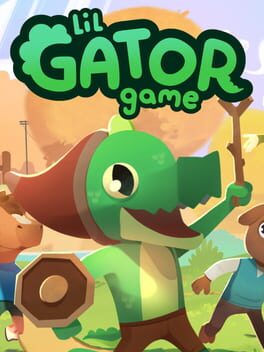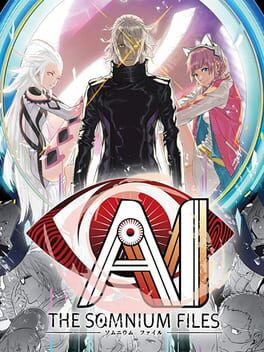Danpire
9 reviews liked by Danpire
This review contains spoilers
At our core, every human is a patchwork of ideas imprinted upon us by others, both consciously and subconsciously. We then continue the cycle of imprinting on those around us, again, both consciously and subconsciously. There’s a reason all art is political, even if not all art desires to engage politically.
It feels impossible, no matter how trite it may feel, to discuss Jimmy and the Pulsating Mass without consistent reference to the inspirations it wears on its sleeve (a strong enough invitation for comparison). Something of a classic Final Fantasy-structured globetrotting adventure with a reinterpretation of Yume Nikki’s transformation system. And, most pressingly of course, a closer set of vibes to what makes the Mother trilogy so beloved than any other game I’ve played. Standing on the shoulders of giants, Jimmy manages, with only a few missteps, to coalesce into an immensely charming RPG with an impressive amount of depth to it.
It’s quickly apparent getting situated in Jimmy’s home atop the clouds it’s some kinda of dream world, beset by the growing rot of the titular Pulsating Mass (an obvious stand-in for… something). This vast world, so rich in variety, is the star of the show. A constant stream of interesting new locales and dungeons reflecting upon Jimmy’s young psyche manages to capture the oh-so-pristine feeling of being a real globe-trotting adventure. It really hits in the endgame cleanup, having the Final Fantasy airship moment and realizing how far I’ve come since the starting island, and how much there still was to experience. Even when I dug well into the game, there was still a solid half-dozen side dungeons with their own unique aesthetics, lore, and gameplay mechanics I never even touched.
Combat alone is chocked to the brim with a stupid number of elements that are so fun to really dig into. Jimmy alone has like 10 separate forms he can switch between in battle, each with completely different niches. As you level them up you unlock pieces of each form to spec base form JImmy into any sort of fearsome fighter. The rest of the team have more predefined niches, but plenty of weapons, equipment, skill manuals, accessories, and collectable furniture that gives a ton of flexibility in the team dynamics. Towards the end, the game does some I LOVE when games do: giving you gimmicky equipment that fundamentally changes how characters work. In the final areas, my healer was rocking with the strongest basic attack in the entire party after an entire game of her being the weakest by a large margin.
The enemies, not to be outmatched, are full of their own little gimmicks, particularly interacting with Goon Jimmy’s grifting. Got an alarm robot in the way? Just steal its voice box and let it flounder in silence. Didn’t steal it and let the alarm summon a Deathbot 3000? Just steal the Deathbot 3000’s voicebox and—oh—that doesn’t prevent it from death-ing you. Of particular interest, basically every boss fight has an interesting gimmick attached to it as well. It’s an interesting contrast to Final Fantasy VII, which (like VI) opens with a boss who’s counterattack serves as a good tutorial to the ATB system, before forgetting boss gimmicks can be a thing until the superbosses. It’s really impressive how well realized Jimmy’s combat ends up being, easily the best combat of any RPG Maker game I’ve played (granted, Omori is probably the only game that remotely competes).
Unfortunately, the game decides to take on particular element from the Mother series that… well… read my Mother 3 review: the combat gets to be a SLOG. While it has the nice QoL feature of being able to ignore some encounters when you hit some arbitrary requirement (I assume level??), each individual encounter is difficult enough and enough of a resource drain to become exhausting, and often leaving you unprepared for boss fights with massive HP pools at the end of a long dungeon.
Almost every boss became a loop of attempting it, realizing I did not have the resources to survive the war of attrition against the boss, then switching to easy mode to get through it. The reason it took so long for me to beat the game was the constant ramming my head against a wall before putting it down for a few weeks, several times over. Until halfway through the game when I decided to just keep easy mode on full time. despite the game pinning normal mode as “the intended experience”, easy mode was so much more enjoyable. It saved the experience for me really, turning it into a really chill adventure overall.
This adventure is constantly intertwined with the adventures of a whole bunch of other characters. While the concept of “reoccuring side characters” is of course not remotely unique, I think its notable how many the game has. Halfway through the game the game stops everything to do what could be called an “every character in the game so far tournament arc” and it’s a delight. It (perhaps counterintuitively) really builds up the sense of adventure and strong vibes.
To reuse the phrasing that certainly made people silently wish death upon me on the Mario Discord, Jimmy and the Pulsating Mass is the “quirky Earthbound inspired indie game” that most exactly captures the vibes that made the progenitor trilogy so appealing. I struggle to pick out the exact elements that make them match so hard beyond a lot of very earnest humor interspersed with some really engrossing descriptions (albeit far more R-rated than anything you’d find in Mother). Still, it ended up making for a very similar feeling experience to the one I had playing Mother 3 last year—and not one that felt derivative in the slightest.
The art style does not carry the vibes as well as the writing, with sprites often looking fairly crude in a way that feels amateurish. It gets a tad unbearable in the game’s gorier moments. Sometimes, the game pulls out a pretty impressive looking part that makes me think the spritework is meant to reflect the crudeness and edginess of a child like Jimmy’s thoughts. But then I see the kinda abhorrent spritework for the visual novel section of the game and I lose benefit of the doubt. At least the soundtrack absolutely slaps.
Ironically, the weakest characters end up being the main cast: Jimmy’s family. They’re not bad characters, but just end up feeling kind of thin and “along for the ride” when spending so much of the game with them. And when the story is so focused on Jimmy’s family, it ended up not really emotionally landing for me, especially compared to how I’ve seen it hit some others. It took until near the end, when Jimmy is given brief flashes on consciousness to realize the Pulsating Mass I suspected to be some sort of metaphor (Earthbound-inspired indie RPG about depression REAL???) was literally a Pulsating Mass. It’s a cancerous tumor. Jimmy is in a coma. Then the rest of the game ends up playing out just about how you’d expect it to. While there’s some texture provided, particularly during the glimpses back into reality, to keep it from feel too trite, I can’t help from feeling somewhat dissatisfied.
Jimmy’s adventure is moreso about the journey than the destination, though, and I think the game even makes the case for that. While not some must play game that will stick with me forever, there’s so much heart that it’s hard not to really like it in spite of the issues. It’s a game of impressive craft, especially considering it was a solo development.
For the final, secret form Jimmy can unlock, he imagines himself as the phoenix. “He feels alive. Energized. Jimmy thinks that if he put his mind to it, he could fly right out of bed. He could fly and fly. He could burn bright forever, like a brand new sun.”
It’s a game that knows how to be beautiful.
It feels impossible, no matter how trite it may feel, to discuss Jimmy and the Pulsating Mass without consistent reference to the inspirations it wears on its sleeve (a strong enough invitation for comparison). Something of a classic Final Fantasy-structured globetrotting adventure with a reinterpretation of Yume Nikki’s transformation system. And, most pressingly of course, a closer set of vibes to what makes the Mother trilogy so beloved than any other game I’ve played. Standing on the shoulders of giants, Jimmy manages, with only a few missteps, to coalesce into an immensely charming RPG with an impressive amount of depth to it.
It’s quickly apparent getting situated in Jimmy’s home atop the clouds it’s some kinda of dream world, beset by the growing rot of the titular Pulsating Mass (an obvious stand-in for… something). This vast world, so rich in variety, is the star of the show. A constant stream of interesting new locales and dungeons reflecting upon Jimmy’s young psyche manages to capture the oh-so-pristine feeling of being a real globe-trotting adventure. It really hits in the endgame cleanup, having the Final Fantasy airship moment and realizing how far I’ve come since the starting island, and how much there still was to experience. Even when I dug well into the game, there was still a solid half-dozen side dungeons with their own unique aesthetics, lore, and gameplay mechanics I never even touched.
Combat alone is chocked to the brim with a stupid number of elements that are so fun to really dig into. Jimmy alone has like 10 separate forms he can switch between in battle, each with completely different niches. As you level them up you unlock pieces of each form to spec base form JImmy into any sort of fearsome fighter. The rest of the team have more predefined niches, but plenty of weapons, equipment, skill manuals, accessories, and collectable furniture that gives a ton of flexibility in the team dynamics. Towards the end, the game does some I LOVE when games do: giving you gimmicky equipment that fundamentally changes how characters work. In the final areas, my healer was rocking with the strongest basic attack in the entire party after an entire game of her being the weakest by a large margin.
The enemies, not to be outmatched, are full of their own little gimmicks, particularly interacting with Goon Jimmy’s grifting. Got an alarm robot in the way? Just steal its voice box and let it flounder in silence. Didn’t steal it and let the alarm summon a Deathbot 3000? Just steal the Deathbot 3000’s voicebox and—oh—that doesn’t prevent it from death-ing you. Of particular interest, basically every boss fight has an interesting gimmick attached to it as well. It’s an interesting contrast to Final Fantasy VII, which (like VI) opens with a boss who’s counterattack serves as a good tutorial to the ATB system, before forgetting boss gimmicks can be a thing until the superbosses. It’s really impressive how well realized Jimmy’s combat ends up being, easily the best combat of any RPG Maker game I’ve played (granted, Omori is probably the only game that remotely competes).
Unfortunately, the game decides to take on particular element from the Mother series that… well… read my Mother 3 review: the combat gets to be a SLOG. While it has the nice QoL feature of being able to ignore some encounters when you hit some arbitrary requirement (I assume level??), each individual encounter is difficult enough and enough of a resource drain to become exhausting, and often leaving you unprepared for boss fights with massive HP pools at the end of a long dungeon.
Almost every boss became a loop of attempting it, realizing I did not have the resources to survive the war of attrition against the boss, then switching to easy mode to get through it. The reason it took so long for me to beat the game was the constant ramming my head against a wall before putting it down for a few weeks, several times over. Until halfway through the game when I decided to just keep easy mode on full time. despite the game pinning normal mode as “the intended experience”, easy mode was so much more enjoyable. It saved the experience for me really, turning it into a really chill adventure overall.
This adventure is constantly intertwined with the adventures of a whole bunch of other characters. While the concept of “reoccuring side characters” is of course not remotely unique, I think its notable how many the game has. Halfway through the game the game stops everything to do what could be called an “every character in the game so far tournament arc” and it’s a delight. It (perhaps counterintuitively) really builds up the sense of adventure and strong vibes.
To reuse the phrasing that certainly made people silently wish death upon me on the Mario Discord, Jimmy and the Pulsating Mass is the “quirky Earthbound inspired indie game” that most exactly captures the vibes that made the progenitor trilogy so appealing. I struggle to pick out the exact elements that make them match so hard beyond a lot of very earnest humor interspersed with some really engrossing descriptions (albeit far more R-rated than anything you’d find in Mother). Still, it ended up making for a very similar feeling experience to the one I had playing Mother 3 last year—and not one that felt derivative in the slightest.
The art style does not carry the vibes as well as the writing, with sprites often looking fairly crude in a way that feels amateurish. It gets a tad unbearable in the game’s gorier moments. Sometimes, the game pulls out a pretty impressive looking part that makes me think the spritework is meant to reflect the crudeness and edginess of a child like Jimmy’s thoughts. But then I see the kinda abhorrent spritework for the visual novel section of the game and I lose benefit of the doubt. At least the soundtrack absolutely slaps.
Ironically, the weakest characters end up being the main cast: Jimmy’s family. They’re not bad characters, but just end up feeling kind of thin and “along for the ride” when spending so much of the game with them. And when the story is so focused on Jimmy’s family, it ended up not really emotionally landing for me, especially compared to how I’ve seen it hit some others. It took until near the end, when Jimmy is given brief flashes on consciousness to realize the Pulsating Mass I suspected to be some sort of metaphor (Earthbound-inspired indie RPG about depression REAL???) was literally a Pulsating Mass. It’s a cancerous tumor. Jimmy is in a coma. Then the rest of the game ends up playing out just about how you’d expect it to. While there’s some texture provided, particularly during the glimpses back into reality, to keep it from feel too trite, I can’t help from feeling somewhat dissatisfied.
Jimmy’s adventure is moreso about the journey than the destination, though, and I think the game even makes the case for that. While not some must play game that will stick with me forever, there’s so much heart that it’s hard not to really like it in spite of the issues. It’s a game of impressive craft, especially considering it was a solo development.
For the final, secret form Jimmy can unlock, he imagines himself as the phoenix. “He feels alive. Energized. Jimmy thinks that if he put his mind to it, he could fly right out of bed. He could fly and fly. He could burn bright forever, like a brand new sun.”
It’s a game that knows how to be beautiful.
Lisa: The Painful
2014
Void Stranger
2023
As much as I love this game to death. Something isn't right, multiple times throughout my playthrough I felt like the game just wouldn't end.
There are just SO many puzzles here, and don't get me wrong, they aren't bad puzzles, sometimes they are hard puzzles, but they aren't bad puzzles, but, I assume that, because I was so curious and engaged with the plot I legit didn't have enough patience to go through them one at a time. I just HAD to see what was lying beyond them, and having to go through so many of them in succession really soured the experience. It almost feels like having such a good and detailed storyline is a detriment to the game, because it competes so fiercily with its other design elements. This game is better experienced one puzzle at a time, but hell if that would've settled well with past me and their interest in the plot.
Its weird, I'm not sure what I'm talking about here, because I feel such a weird way about this game. Again I love it to death, but I can't just ignore how dead inside I felt at certain points.
I'm absolutely going to play whatever Erasure cooks next tho. And I absolutely recommend this game to anyone who has enough self control to take their time with the game.
There are just SO many puzzles here, and don't get me wrong, they aren't bad puzzles, sometimes they are hard puzzles, but they aren't bad puzzles, but, I assume that, because I was so curious and engaged with the plot I legit didn't have enough patience to go through them one at a time. I just HAD to see what was lying beyond them, and having to go through so many of them in succession really soured the experience. It almost feels like having such a good and detailed storyline is a detriment to the game, because it competes so fiercily with its other design elements. This game is better experienced one puzzle at a time, but hell if that would've settled well with past me and their interest in the plot.
Its weird, I'm not sure what I'm talking about here, because I feel such a weird way about this game. Again I love it to death, but I can't just ignore how dead inside I felt at certain points.
I'm absolutely going to play whatever Erasure cooks next tho. And I absolutely recommend this game to anyone who has enough self control to take their time with the game.
Palworld
2024
Slay the Princess
2023
The voice acting is good, really good even. But, overall its just sort of...uninteresting? Western visual novels have this tact where they all try to be metatextual but don't really understand why the metatextual elements of stuff like Umineko or Subarashiki Hibi work, and here its basically just set dressing.
If you try to contrast it with something like Stanley Parable however, you come into the problem where that game actively had things it wanted to talk about with regards to how video games function--this by function of being a standard visual novel can't do this, so it tries to play off the emotion of the leads which brings you back to the first problem.
Its not bad outright, but its just dull and sort of lacking in things to say.
If you try to contrast it with something like Stanley Parable however, you come into the problem where that game actively had things it wanted to talk about with regards to how video games function--this by function of being a standard visual novel can't do this, so it tries to play off the emotion of the leads which brings you back to the first problem.
Its not bad outright, but its just dull and sort of lacking in things to say.
Slay the Princess
2023
Rating: 10/10
Gollum, the latest venture from Daedalic Entertainment, takes players on a unique and psychological journey into the tortured mind of one of Middle-earth's most iconic characters. While not without its flaws, Gollum manages to deliver a distinctive gaming experience that is both captivating and thought-provoking.
The game's greatest strength lies in its narrative and character exploration. Gollum's internal struggle between his Smeagol and Gollum personas is portrayed with nuance and depth. The storyline offers insights into the character's past and motivations, shedding light on the complex nature of Gollum's obsession with the One Ring. The voice acting and motion capture work for Gollum are outstanding, capturing the essence of the character made famous by J.R.R. Tolkien's writings and Peter Jackson's films.
Gollum's stealth-based gameplay is a departure from traditional action-oriented Middle-earth games. The emphasis on sneaking and climbing adds a layer of tension and strategy to the experience. The mechanics align well with the character's nature, as players navigate the shadows and utilize Gollum's agility to outwit enemies. The level design, while not groundbreaking, successfully captures the eerie and treacherous atmosphere of Mordor.
However, Gollum falls short in certain technical aspects. The graphics and animations, while serviceable, lack the polish seen in some other contemporary titles. The controls can be finicky at times, leading to frustration during critical moments. Additionally, the pacing of the gameplay may not suit everyone, as the slower, methodical approach may not be appealing to those accustomed to more action-packed experiences.
Despite its flaws, Gollum is an undeniably fascinating journey for fans of the Lord of the Rings universe. The game's commitment to storytelling and character development sets it apart, offering a fresh perspective on a beloved figure. While it may not achieve perfection, Gollum is certainly worth playing for those who appreciate a narrative-driven experience and are willing to overlook some technical shortcomings. With a rating of 10/10, Gollum stands as a commendable addition to the Middle-earth gaming catalog, providing a unique lens through which to view the world of Tolkien.
Gollum, the latest venture from Daedalic Entertainment, takes players on a unique and psychological journey into the tortured mind of one of Middle-earth's most iconic characters. While not without its flaws, Gollum manages to deliver a distinctive gaming experience that is both captivating and thought-provoking.
The game's greatest strength lies in its narrative and character exploration. Gollum's internal struggle between his Smeagol and Gollum personas is portrayed with nuance and depth. The storyline offers insights into the character's past and motivations, shedding light on the complex nature of Gollum's obsession with the One Ring. The voice acting and motion capture work for Gollum are outstanding, capturing the essence of the character made famous by J.R.R. Tolkien's writings and Peter Jackson's films.
Gollum's stealth-based gameplay is a departure from traditional action-oriented Middle-earth games. The emphasis on sneaking and climbing adds a layer of tension and strategy to the experience. The mechanics align well with the character's nature, as players navigate the shadows and utilize Gollum's agility to outwit enemies. The level design, while not groundbreaking, successfully captures the eerie and treacherous atmosphere of Mordor.
However, Gollum falls short in certain technical aspects. The graphics and animations, while serviceable, lack the polish seen in some other contemporary titles. The controls can be finicky at times, leading to frustration during critical moments. Additionally, the pacing of the gameplay may not suit everyone, as the slower, methodical approach may not be appealing to those accustomed to more action-packed experiences.
Despite its flaws, Gollum is an undeniably fascinating journey for fans of the Lord of the Rings universe. The game's commitment to storytelling and character development sets it apart, offering a fresh perspective on a beloved figure. While it may not achieve perfection, Gollum is certainly worth playing for those who appreciate a narrative-driven experience and are willing to overlook some technical shortcomings. With a rating of 10/10, Gollum stands as a commendable addition to the Middle-earth gaming catalog, providing a unique lens through which to view the world of Tolkien.
